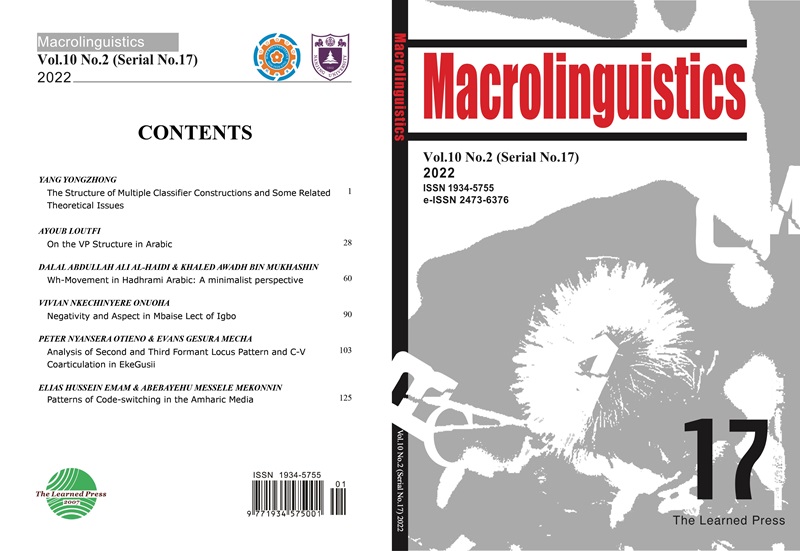普通话中的形容词强化词hĕn
引用次数: 1
摘要
摘要:Huang(2006)认为,汉语形容词增强词hĕn'very'是一种强制性的类型提升词,它将简单形容词转化为复杂形容词,这是性质理论所要求的(Chiercia,19841985)。本文研究了hĕn不是强制性的其他情况,并得出结论,除了Huang(2006)提出的h \277;n插入、词缀和重叠之外,否定词bú和VP或IP运动也可以作为简单形容词的类型提升器。我进一步认为,只允许使用一种类型的升降装置本文章由计算机程序翻译,如有差异,请以英文原文为准。
The Adjectival Intensifier hĕn in Mandarin Chinese
University, USA) Abstract: Huang (2006) argues that hĕn ‘very’, the Mandarin adjective intensifier, is an obligatory type-lifter that transforms simple adjectives to complex adjectives for predicatehood, as is required by the Property Theory (Chierchia, 1984, 1985). This article studies the other cases where hĕn is not obligatory and concludes that, in addition to hĕn -insertion, affixation, and reduplication identified by Huang (2006), the negator bù and VP or IP movement can also function as type-lifters for simple adjectives. I further argue that only one type-lifter device is allowed
求助全文
通过发布文献求助,成功后即可免费获取论文全文。
去求助
来源期刊
自引率
0.00%
发文量
83
审稿时长
20 weeks
期刊介绍:
Macrolinguistics (ISSN 1934-5755, e-ISSN 2473-6376) is an international academic journal which is specialized in research papers of non-Indo-European linguistics. It is published biannually by The Learned Press and funded by the Double First-Class Initiative of Nanjing University. It aims at contributing to the complementarity and interaction of linguistic research worldwide.

 求助内容:
求助内容: 应助结果提醒方式:
应助结果提醒方式:


